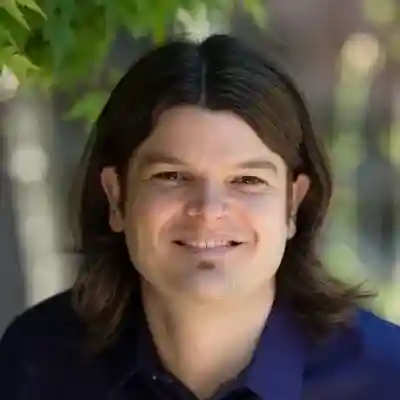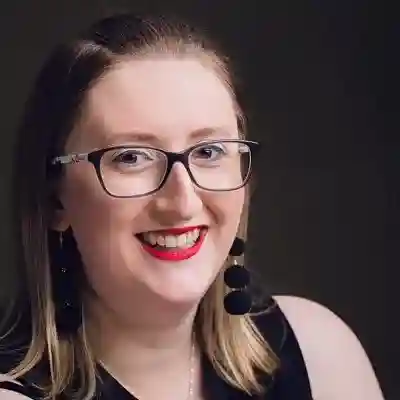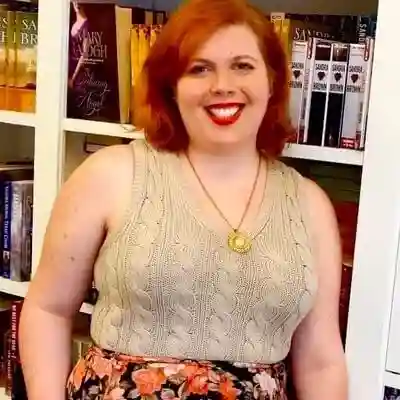Hey, everybody. I am Bryan Cohen, and I am very excited to share this with you today. We are going to go over some of the book descriptions that you submitted to Reedsy for today's Reedsy Live, and we are going to go over it. I am going to show you some of the tips and tricks I have learned to improve these descriptions.
First, we're going to start off with 10 book description headlines and first lines, and we are going to take a look at what we can do to improve them.
Love is Not Arrogant or Rude by Lila Diller
So this description starts off with:
Is True Love for Everyone?
That’s what Morgan wonders, an introverted secretary whose feelings for her boss Jason secretly bloom.
In my opinion, it's good to be a little bit vague with our descriptions sometimes. "It's true love for everyone," is a little bit too vague. It looks like we have kind of a love triangle situation going on here with Morgan, so we want to see something more along the lines of Morgan choosing between these two guys, so maybe we want something more like:
"She's always loved her boss, but her flame still burns for her ex. How will Morgan choose her soulmate?"

This isn't perfect, but this is just us playing around with how can we make this appeal to someone who is looking for a book about a love triangle. We bring out the love triangle in the actual description, so we bring in the love triangle. That is the way to make sure that the readers who are interested in that can go into this or even just the first line knowing this is a book for them, so that is the way to make sure you're going to appeal to your target readers. Give them exactly what they want.
Going too vague can be a little tough sometimes, but if we just zoom in, let's figure out what is it that your readers want, let's go into that, and one of the reasons I love for romance specifically is a three-sentence structure is because you have one love interest, one ... another love interest or, if it's just a guy and a girl, the guy, the girl, and then will they get together? What's the cliffhanger? Are they going to get together? Yes or no? That is how we play around with that one to make it a little less vague.
The Blue Stain by Candice Petrocova
Here's the start of Candice's description:
Nothing is as beautiful as the testimony of a blessed life. But sometimes the universe will take you on a woebegone journey before you reach your final destination . . .
This is a bit of a challenging one in that we've kind of gone very ethereal. We've kind of gone woo-woo. If you've heard of my Sell More Books podcast, you know that we talked about the term "woo-woo" sometimes. This feels pretty woo-woo, but if we go down here, we have that it's about an actual person. It's not just an ethereal book here. We have Sheehan Donovan, he's a famous Irish pianist, his aloof neighbor, Colette, so there are people here. This is actually a relationship.
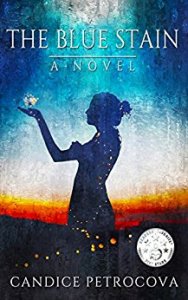
Now, it feels like a literary fiction type relationship, so it's a little heightened, but it is not just a woo-woo kind of book, so we need to bring it back down to reality. It looks like we have Sheehan Donovan is in prison, and then he is living alone on the beach, so I don't know if he's actually done the manslaughter, but we can have something like "Prison broke his spirit," Sheehan's part of the headline. Then we have Colette, who's a gifted painter, but also an alcoholic, so we even see the demons line there, "She has demons of her own."
Now, they've got this journey of self-discovery. Eventually, they find each other, but they find more than just that, so we have, "Together, they'll find each other and their true selves," or something like that. Not that what I put here is perfect necessarily, but I'm trying to make sure that you see another option, so we don't have to prove that it's a higher aimed book, a literary fiction type book by making our description very, very literary.
Prison broke his spirit. She has demons of her own. Together, they'll find each other and their true selves.
If it was just, "They're going to fall in love," maybe we'd find together, "They'll find each other," but because we have higher aims here, we go with, "And their true selves as well." Easily as we possibly can, we want to make sure that we are focused on our readers. It's not about how cool our book is or this really literary phrase we put together, this cellar door sort of combination of things here. We want to make sure that readers love this stuff and care about it.
Blind Justice by Nathan Burrows
Gareth Dawson is an innocent man. Not a murderer. His main problem is that the British justice system doesn’t agree with him.
In thrillers, we often want to know why this book needs to be read, why we should care. What are these high stakes that are going to happen to Gareth? The problem with this headline is that it only gives us where Gareth is at the beginning of the story. We need to know what's going to happen to Gareth. We're almost telling a little story in a very short amount of time here.
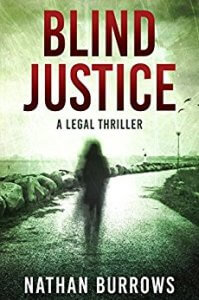 So we have that Gareth is a prisoner. He's been proven guilty. He is approached by a lawyer, and his fight for freedom begins, but we really want to make it a question, so we're going to start by saying, "An innocent man sent to prison for life." Already, we have his situation, a lawyer with a second chance, so he has this opportunity that he might be able to actually get out of prison, so we're building up to this.
So we have that Gareth is a prisoner. He's been proven guilty. He is approached by a lawyer, and his fight for freedom begins, but we really want to make it a question, so we're going to start by saying, "An innocent man sent to prison for life." Already, we have his situation, a lawyer with a second chance, so he has this opportunity that he might be able to actually get out of prison, so we're building up to this.
Now, from the description itself, I don't really know what the cliffhanger is. His fight for freedom begins, but what's the obstacle? What is the conflict? He is in prison for a crime he didn't commit and a lawyer is sharing some information with him that might get him out, but what's standing in his way of getting out? Is it public opinion? Is it a crooked judge? We don't know, so I can't, with the information I have, completeness as I'd like to, so I'm going to make something up, so,
An innocent man sent to prison for life. A lawyer gives him a second chance. Can he overcome a corrupt system to clear his name?
We need some additional information there, but we want to give our readers stakes here. We're not just summarising our plot. We are going above and beyond to say what it is exactly that our protagonist is dealing with at the beginning of the story and then when push comes to shove at the end, so can he overcome a corrupt system to clear his name? That may not be exactly what your story is about, but you can change that based on what your story is.
Black Bead by J.D. Lakey
This is a young adult book, and it actually doesn't much of a hook right at the beginning. What we have here are a couple of editorial reviews. Technically, you're not supposed to put excerpts from reviews into your book description. It's one of those things that is technically against Amazon's terms of service, but a very few people actually abide by, so I'm not even going to worry about that necessarily, but I don't think you should necessarily have a review right off the top. I've seen people do it.
I would rather have a hook, so we're going into this description:
On a savage, outlying planet an enclave of psionically-trained humans have built a utopian, matriarchal society that lives in harmony with all life. Leaving behind the polluted and corrupt world....
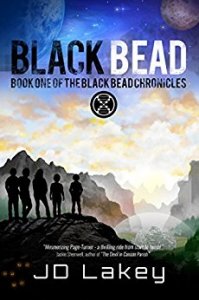 Plot. Plot. Plot. Plot. We have gone through this many words and he haven't got to our main character. Why is that an issue? I'll tell you that if you look at the most appealing books of all time, the Harry Potters of the world, The Hunger Games, people connect with the characters, and there's no rule against people connecting with the characters in your description itself. You might have the coolest world ever, but if you don't allow your readers or your potential readers to make a deep connection with your characters in there, then they're not going to be that interested in the book.
Plot. Plot. Plot. Plot. We have gone through this many words and he haven't got to our main character. Why is that an issue? I'll tell you that if you look at the most appealing books of all time, the Harry Potters of the world, The Hunger Games, people connect with the characters, and there's no rule against people connecting with the characters in your description itself. You might have the coolest world ever, but if you don't allow your readers or your potential readers to make a deep connection with your characters in there, then they're not going to be that interested in the book.
All the plot machinations and settings that you include in your description, they're going to matter a lot more if you see those things happening and that place surrounding a character that we connect with.
Cheobawn has been looking forward to Choosing Day for her entire life. But when she’s marked with the Black Bead, a symbol of shame and bad luck, she wonders if her whole world will come crashing down.
Do we have the context of the setting? Not really, but do we start to get a feel for who Cheobawn is — for who this character is versus what kind of world she lives in? Yes. Look, I don't have the description for Divergent or Hunger Games or any of these dystopian novels in front of me, but they sure as heck have the character up high and featured. Divergent was so successful because of the character, Tris. I'm not a fan of that series necessarily, but Tris is a character that many young girls connected with because she was different.
The Storm of Shadows by Ninian Carter
DREAMS MAY COME TRUE. NIGHTMARES DO.
Nightmares do what? Oh, they come true. That takes a second to figure out. You want to make it as clear and easy as possible for your readers, and so you may want to write, "Dreams may come true, but nightmares always do." But if we are having some crazy dystopian, scary thing happening in the Arctic Circle, we might even take this to another level.
Dreams may come true, but when a monster comes from the north, nightmares ALWAYS come true...
I don't like the double use of "come true" there, but we need to sometimes be a little more specific especially if we've got a creepy monster. Like, seriously, if you have a deranged abomination, that's cool. Readers who like books about monsters want to see that happening, so let's mention the deranged abomination in the hook to get our readers excited.
White Plains by Rebecca Perkin
POWER CAN COME TO ANYONE
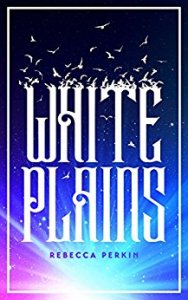 Power? Like nuclear power? Like solar power?
Power? Like nuclear power? Like solar power?
It's a little too vague here. Looking at the next line, I see we have this young adult fantasy, "17-year-old Samuel falls through this gateway in Earth's forest into a world at war," and then he meets a girl who is going through portals.
It seems like there's not a lot of information here, but we want to touch on what's happening with this guy, so let's try:
A boy falls through a portal to another realm. He may be the only one who can stop a millennium-old war...
We want to see that there's a fantasy aspect, so there's "through a portal to another realm," and then we have this war. We have this longstanding war. I'm not saying that's what you need to use. You never need to use one of these hooks that I've suggested, but you may want to consider taking this as a starting point and then using that to branch off.
The Heart of the World by Nicholas Kotar
A land destroyed by war. An army of giants on the rampage. Can a crippled girl heal the world before it dies?
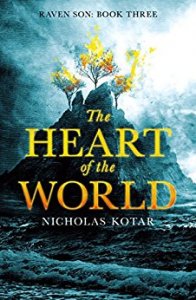 This is like a B-plus, A-minus hook. This is so great. I'm so happy with this hook, but I want to point toward the power of words. Words have certain meanings for people, have certain feelings that they convey for readers, and I want to focus on the word "crippled" here.
This is like a B-plus, A-minus hook. This is so great. I'm so happy with this hook, but I want to point toward the power of words. Words have certain meanings for people, have certain feelings that they convey for readers, and I want to focus on the word "crippled" here.
She may be crippled. She may be disabled. She may have this situation that's wrong with her, but I think that certain people might take that word the wrong way. If there's a chance that even one word rubs people the wrong way or causing them an issue, you might want to change it.
A land destroyed by war. An army of giants on the rampage. Can a broken girl heal the world before it dies?
I like "broken" better because it evokes an emotion; a feeling. "Crippled" could get people who are really pissy about that sort of thing to be turned away, so even sometimes one word, changing one word can make a difference.
Mother of Mars by D.M. Pruden
All life in the solar system is about to be wiped out…
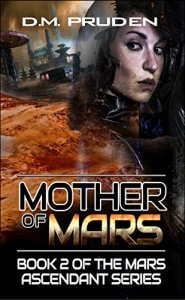 That's not bad here for Mother of Mars. That is not bad at all, but we need to keep in mind that it might not be enough because it's just focusing on plot. So what is the cliffhanger? I think that Mel, Melanie Destin, is trying to prevent the destruction of all life. It says, "And her meddling will make her the catalyst for the destruction of all life in the solar system," so maybe we make this a little bit more about Mel.
That's not bad here for Mother of Mars. That is not bad at all, but we need to keep in mind that it might not be enough because it's just focusing on plot. So what is the cliffhanger? I think that Mel, Melanie Destin, is trying to prevent the destruction of all life. It says, "And her meddling will make her the catalyst for the destruction of all life in the solar system," so maybe we make this a little bit more about Mel.
Here's one possible option:
Dr. Melanie Destin just brought new life to Mars. But experiments have consequences, like all life in the solar system ceasing to exist....
We're starting with the character. That is what we want, so we get the hook in there, we bring in the character in the hook, and then hit the cliffhanger.
Update: Since the webinar, the author has now changed the headline to now read:
An ageless menace lurks on the surface of Mars. An unscrupulous industrialist seeks to control it. One woman was bred to destroy it.
The Language Immersion Life: A Guide for Families by Millie Park Mellgren
Here is the original description:
Language immersion is a remarkable educational opportunity in which young children acquire a second language beginning the first day of kindergarten. Students learn basic elementary school curriculum even though their teachers only speak to them in the language they are learning, not in English.
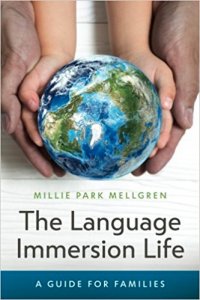 The first sentence is a fact. It's followed by another fact. It's followed by another fact, but what about the book? What am I learning from this book? What is this book teaching me? If language immersion is an educational opportunity, then maybe this book is geared towards parents who are experimenting with language immersion, so maybe, "Are you experimenting with language immersion in your family?"
The first sentence is a fact. It's followed by another fact. It's followed by another fact, but what about the book? What am I learning from this book? What is this book teaching me? If language immersion is an educational opportunity, then maybe this book is geared towards parents who are experimenting with language immersion, so maybe, "Are you experimenting with language immersion in your family?"
We've got a problem that people are looking to solve. Someone wants to learn more about language immersion. We've got a problem that people are searching for on Amazon, that people are searching for on Google, so we want to make sure they know this book addresses that problem.
Are you experimenting with language immersion with your children? Discover a step-by-step system to get the most out of your family’s second language learning.
I want to show you that what you want to do is you want to frame your book as the solution to this problem. Someone is looking to get language immersion to work for their family. You come in and say, "My book is the solution. Discover this system to get the most out of your experimentation efforts." That is how I think almost every hook for nonfiction should go.
The Affordable Flight Guide by Jen Ruiz
What if you could fly anywhere in the world for $50?
I like this hook a lot. I think that it could work. I think there is a chance that it won't work because it's not what people are searching for.
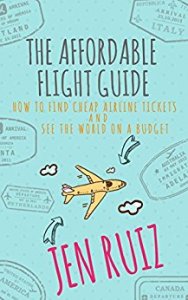
I like to do a few things here. I like to have a problem followed by a solution like I mentioned earlier:
- a problem in the form of a question that people might be searching for,
- your book framed as the solution, a couple more questions, and then
- establish your expertise which you do a good job of here: "Jen Ruiz is awesome."
I feel like basically the framework I like to use, you skipped over a few steps, but that doesn't mean this couldn't work. I would change it slightly, however:
Are you tired of paying top dollar for domestic and international flights? Discover how to save big bucks whenever you take the friendly skies.
We have a problem: flights cost too much. What's the solution? This book is going to be your solution. What works about that is that some people, just from knowing that this book is a solution, potential solution to their problems, they say, "Boom," snatch it up because, nonfiction readers, they will buy every single book on a subject, so if you can at least prove that your book is in that genre, then you're in great shape here.
Now that we've done a bunch of headlines, let's do a full description from beginning to end.
Let's Be Just Friends by Camilla Isley
What if the man you've always loved isn't the right one for you?
Rose Atwood has been in love with her best friend for years, and she's tired of keeping her feelings under wraps for fear of getting hurt. Being Tyler's best friend is becoming more difficult with every passing year and every new woman in his life--especially Georgiana Smithson, a snotty, beautiful girl who's in Law School with them.
When Rose, dumped by her long-term boyfriend, moves temporarily into Tyler's apartment, tension spikes. Georgiana wants Rose out of the house. Rose wants Georgiana out of Tyler's life. And Tyler... well, he doesn't really know what he wants.
As an unexpected argument brings Rose and Tyler closer than they've ever been, they must decide if there's more to their relationship than being just friends. And they must do it quickly, as Georgiana is determined to do everything in her power to keep Tyler and Rose apart. After all, all is fair in love and war.
Will Rose make a leap of faith and trust Tyler with her heart?
Will Tyler make the right choice, or will he be too late?
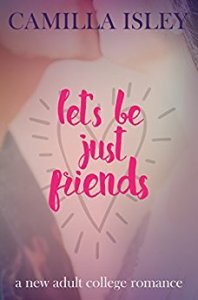 We kind of have another romance here. "What if the man you've always loved isn't the right one for you?" I like second person, but I don't always think second person works. I think it can be too specific because not all romance readers want to think about this love in their own life and especially because they're looking for the "happily ever after."
We kind of have another romance here. "What if the man you've always loved isn't the right one for you?" I like second person, but I don't always think second person works. I think it can be too specific because not all romance readers want to think about this love in their own life and especially because they're looking for the "happily ever after."
"What if the man you've always loved isn't the right one for you?"
Are you trying to get readers to think that their husband sucks or something? You need to think happy thoughts here. You need to encourage people to be very happy that they're going to get a "happily ever after" with this book, so let's talk about this.
So Rose can't stop loving her best friend. What do we have about Tyler? We don't have much about Tyler here, so we might need a little bit more about Tyler. I may end up having to make something up, because, in these descriptions for romance, I like to make sure that we have both parties represented, the man and the woman or the two women or the two men, depending how it's set up.
"She can't stop loving her best friend, but they just became roommates. Will close quarters reveal a secret and a chance for romance?"
I don't love the rhyming of "chance" and "romance" there, but we're trying to get something going about the situation. We're trying to get something about this situation between the two of them, so instead of doing the second person, sometimes that's a better way to go.
"Rose Atwood is tired keeping her feelings a secret. With every passing year, it becomes more and more difficult to keep her love for Tyler under wraps."
I'm using some of the language you have, but I'm trying to use a little bit of momentum, so "with every passing years" is a phrase that you can use at the beginning of the description with before, after, et cetera, to give it a little momentum from the previous sentence, so we're like transferring momentum from this sentence to that sentence.
"With every passing year, it becomes more and more difficult to keep her love for Tyler under wraps. It doesn't help that her best friend,"
We might need to change that around. We did mention in the hook say that they were best friends, but we can play around with that.
"It doesn't help that her lifetime best friend is in a serious relationship with the snottiest girl Rose has ever seen."
We don't need to even know about Rose's long-term boyfriend because she cares about Tyler. We want to have a cliffhanger almost in this paragraph.
"When she loses her apartment after a bad breakup, Tyler offers her a spot on the couch and a chance to get closer than ever before ..."
We don't need a dot, dot, dot, but it's kind of a fun little way to show the cliffhanger made manifest.
"Now, Georgiana wants Rose out of the house. Rose wants Georgiana out of her life."
It doesn't seem like Georgiana is necessarily that important. If she were a POV character, obviously, we'd do this differently, but it seems like it's just a romance between Rose and Tyler here, so,
"Tyler offers her a spot on the couch and a chance to get closer than ever before. As tensions between Tyler's girlfriend and Rose heat up, Tyler wonders if the girl of his dreams was right in front of him all along."
That's a little bit more cut to the chase than I'd like to be. Probably, if I had more information about Tyler, I'd probably do a little bit paragraph about Tyler, but since I don't have that and we only have a few minutes left, I want to cut to the chase here.
"Tyler wonders if the girl of his dreams was right in front of him all along. With the chemistry sizzling between them, Rose forces Tyler to make a choice."
Then we can go into the "if he says yes, she's in love, but if not, she loses her best friend," so kind of, "Take his stuck-up girlfriend and lose his best friend forever or choose her for a chance at an incredible future?" something like that. I say, "something like that," because it's not necessarily going to be perfect me just doing this live. Let's have a look at what we have so far, and then I'm going to show you two more thing.
She can’t stop loving her best friend. But they just became roommates. Will close quarters reveal a secret and a chance for romance?
Rose Atwood is tired of keeping her feelings a secret. With every passing year, it becomes more and more difficult to keep her love for Tyler under wraps. It doesn’t help that her lifetime best friend is in a serious relationship with the snottiest girl Rose has ever seen. When she loses her apartment after a bad breakup, Tyler offers her a spot on the couch and a chance to get closer than ever before...
As tensions between Tyler’s girlfriend and Rose heat up, Tyler wonders if the girl of his dreams was right in front of him all along. With the chemistry sizzling between them, Rose forces Tyler to make a choice: take his stuck-up girlfriend and lose his best friend forever or choose her for a chance at an incredible future...
Now, to finish up this description, we're going to say what this book is:
Let’s Just Be Friends is a humorous contemporary romance. If you like unsure heroines, simmering chemistry, and best friends who want something more, then you’ll love Camilla Isley's witty, romantic novel.
Buy Let’s Just Be Friends to see if these besties can go to the next level today!
That's not perfect, but what I like with the selling paragraph and the call-to-action is to say what the book is, the name of the book, is a humorous, contemporary romance. If you love this, this and this, then you'll also love this book.
People are looking for reasons, additional reasons to buy. If you don't feel comfortable using adjectives that you make up, look through your customer reviews, see what they've said. This gives almost a command to tell these readers what to do, and if they have 90 windows open, they might not be thinking straight, so you need to make it very, very clear.
A Practical Guide to Decision Making by A. I. Shoukry
Are you in or are you out? In or out of a relationship? In or out of a job? In or out of an outing? Why are decisions so hard to make--both big life decisions and small daily decisions?
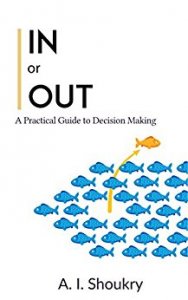 As we mentioned above, we want to have a problem in the form of a question right at the beginning. What you have here are too many questions. We want to almost have a more specific question, so: "Do you have trouble making decisions in all areas of your life?"
As we mentioned above, we want to have a problem in the form of a question right at the beginning. What you have here are too many questions. We want to almost have a more specific question, so: "Do you have trouble making decisions in all areas of your life?"
It's a little too close to the subtitle, but at least we're getting a question that would tie in with what people are searching for.
We would go into now framing your book framed as the solution:
Do you have trouble making decisions in all areas of your life? Discover a practical system for making decisions quickly and effectively to achieve everything you dream.
Do you feel like you have one foot in and one foot out of your jobs, relationships, and social engagements? Are your big and small life decisions weighing you down in equal measure? Author and podcaster A.I. Shoukry spent years looking into the decision making process. He’s helped hundreds of people figure out how to make the smallest and the largest decisions in their life a breeze. And now he’s here to help you do the same.
Then, you would go into your synopsis here: three sentences that would go into the contents and why this book is right for the person — and then go into bullet points.
Inside In And Out, you'll discover:
- How to easily make decisions that can affect your daily life and work.
- How to understand the philosophy and motives behind your decisions, etc...
You want to look at not just what people are getting out of this book, but what's the further extension. What happens after they learn to make better decisions? We want to take it one step further.
Then we would have our selling paragraph — so we would say:
In or Out is a landmark book for making the important decisions in your life. If you like expert advise, easy-to-follow instructions, and a down-to-earth teacher, then you’ll love A.I. Shoukry’s fantastic resource.
Buy In and Out to make the best decision of your life today!
That last line's a little cheeky, but it's kind of funny, so I'm going to go with it.
All right, folks, glad you guys found this helpful. If you're interested in having me back, I had a good time, maybe we can get the tech to work. Maybe we'd do this in another couple of months or something, but thank you!
Do you need help with your book description? Head to Bryan's site at Best Page Forward to see what he can do for your blurb — and what that blurb can do for your book sales.

